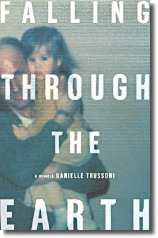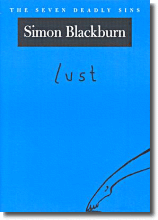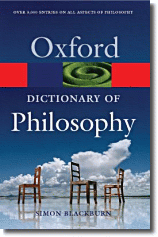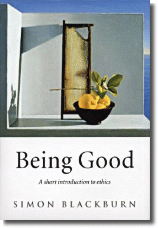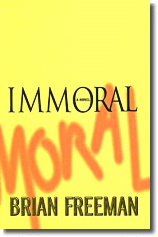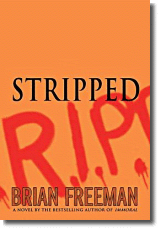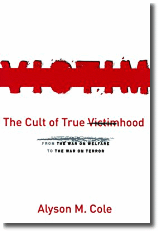I asked Ed to apply the "page 69 test" to his latest book; this is what he reported:
My novel is the debut title in a modern hardboiled detective series. Our hero, PI Frank Johnson, has left the bucolic fox huntThanks to Ed for the input.country in Middleburg, Virginia, and driven the short distance to posh, fashionable Potomac, Maryland outside Washington, D.C. Frank is investigating the disappearance of Carl Taliaferro, and this is a side trip to interview Carl’s affluent parents.
Frank’s visit with the Taliaferros becomes a pivotal scene. I wanted a bit more than another PI yarn. A major theme underlying Dirt-Brown is the stratified society entrenched in Middleburg and Potomac. Frank dislikes trafficking between the various castes while pursuing his case. Nonetheless after this exchange of terse dialogue, he realizes the mystery confronting him will be difficult and thorny to solve.
Page 69 to The Dirt-Brown Derby quoted in full:
“I’m Frank Johnson -- ”
“Soliciting is prohibited,” she said. The door flew toward me.
My hand obstructed its path. “No ma’am, you’ve taken the wrong idea. I came to speak to Mr. Taliaferro and yourself.”
“Concerning?”
“Concerning your son, Carl.”
“Who are you with? The Washington Post? My husband is retired and no longer active in those government affairs. Go away. Leave us in peace. Please.”
“No, I’m not the press,” I said. “I’m a detective. Only to talk, I promise you. Five minutes and no more of your time. You’ve nothing to lose except to get rid of me.”
Her tall, lithe profile tucked around the door. “Okay only you’d better make it snappy.”
Their circular two-story foyer was lit in brilliant harshness. My eyes flickered to deal with it.
“Wait in the kitchen,” she said. “I’ll go rouse my husband. The au-pair’s room is now his office.”
I sat at the oval oak table while noticing a copper tea kettle collection on shelves across the center aisle.
“Mr. Johnson?” A man’s baritone filled the room. “I’m Rusty Taliaferro. My wife said you came to talk about Carl.”
He was half a head taller than me even if with the stooped shoulders. He exuded gray sideburns, mustache, eyebrows, and longish hair. His teeth were capped or he wore dentures. A hearing aid clipped over an ear. A hawthorn cane aided in his balance. Man, I couldn’t wait to join AARP.
I handed him my license like a penitent driver does to a disgruntled highway patrolman. “Private agent. Mrs. Taliaferro, Emily’s mother, employs me.”
“Oh Lord.” His sigh was a pained one. “What the devil has her in an uproar now?”
“She questions the official disposition of your granddaughter’s death,” I said.
Rusty Taliaferro wrapped both palms atop his cane and lowered himself into an oak chair opposite me. “That fool woman will undo me yet,” he said. “What has she put you up to? Chasing down phantom killers? She has killers on the brain.”
“Well, she claims Emily’s riding mishap wasn’t accidental,” I said.
“Naturally, naturally,” he said. “What mom wants to believe their daughter fell victim to a random occurrence of ugly misfortune. We both loved Emily but we’re also resigned to accept what tragedy befell her. Life goes on.”
“I won’t belabor that point. Forgive my intrusion, but it has a direct bearing on my case. Did you ever entertain suspicions that your son’s death was anything but what the Coast Guard ruled it as?”

Among the reviews for The Dirt-Brown Derby:
A great protagonist, a suspenseful story, a wonderful sense of place. It's all here. An impressive debut by Ed Lynskey. He gets it right the first time out, the atmosphere, the characters. Watch out for this guy!PI Frank Johnson is slated to appear in the sequels Pelham Fell Here (Mundania Press, 2007) and Troglodytes (Mundania Press, 2008).
—Edgar, Shamus, and Anthony Award-winner Steve Hamilton, USA Today bestselling author of PI Alex McNight mysteries
There's a new thoroughbred in the noir world of private investigators. Ed Lynskey's The Dirt-Brown Derby is vintage crime — smart, crisp dialogue, a town full of dysfunctional characters, a carefully twisted plot, and a terrifically enjoyable read.
—Nero Wolfe Award-winner Linda Fairstein, New York Times bestselling author of the Alexandra Cooper mysteries
Ed's work has been anthologized by St. Martin’s Press and University of Virginia Press. His short fiction has appeared in Alfred Hitchcock Mystery Magazine, and his poems have appeared in The Atlantic Monthly. His reviews have appeared in the New York Times Book Review and the Washington Post.
Previous "page 69 tests":
Cindy Dyson, And She Was
Simon Blackburn, Truth
Brian Freeman, Stripped
Alyson M. Cole, The Cult of True Victimhood
Jeff Biggers, In the Sierra Madre
Jeff Broadwater, George Mason, Forgotten Founder
Alicia Steimberg, Andrea Labinger (trans.), The Rainforest
Michael Grunwald, The Swamp
Darrin McMahon, Happiness: A History
Leo Braudy, From Chivalry to Terrorism
David Nasaw, Andrew Carnegie
Leah Hager Cohen, Train Go Sorry
Chris Grabenstein, Slay Ride
David Helvarg, Blue Frontier
Marina Warner, Phantasmagoria
Bill Crider, A Mammoth Murder
Robert W. Bennett, Taming the Electoral College
Nicholas Stern et al, Stern Review Report
Kerry Emanuel, Divine Wind
Adam Langer, The Washington Story
Michael Scott Moore, Too Much of Nothing
Frank Schaeffer, Baby Jack
Wyn Cooper, Postcards from the Interior
Ivan Goncharov, Oblomov
Maureen Ogle, Ambitious Brew
Cass Sunstein, Infotopia
Paul W. Kahn, Out of Eden
Paul Lewis, Cracking Up
Pagan Kennedy, Confessions of a Memory Eater
David Greenberg, Nixon's Shadow
Duane Swierczynski, The Wheelman
George Levine, Darwin Loves You
John Barlow, Intoxicated
Alicia Steimberg, The Rainforest
Alan Wolfe, Does American Democracy Still Work?
John Dickerson, On Her Trail
Marcus Sakey, The Blade Itself
Randy Boyagoda, Governor of the Northern Province
John Gittings, The Changing Face of China
Rachel Kadish, Tolstoy Lied
Eric Rauchway, Blessed Among Nations
Tim Brookes, Guitar and other books
Ruth Padel, Tigers in Red Weather
William Haywood Henderson, Augusta Locke
Jed Horne, Breach of Faith
Robert Greer, The Fourth Perspective
David Plotz, The Genius Factory
Michael Allen Dymmoch, White Tiger
Patrick Thaddeus Jackson, Civilizing the Enemy
Tom Lutz, Doing Nothing
Libby Fischer Hellmann, A Shot To Die For
Nelson Algren, The Man With the Golden Arm
Bob Harris, Prisoner of Trebekistan
Elaine Flinn, Deadly Collection
Louise Welsh, The Bullet Trick
Gregg Hurwitz, Last Shot
Martha Powers, Death Angel
N.M. Kelby, Whale Season
Mario Acevedo, The Nymphos of Rocky Flats
Dominic Smith, The Mercury Visions of Louis Daguerre
Simon Blackburn, Lust
Linda L. Richards, Calculated Loss
Kevin Guilfoile, Cast of Shadows
Ronlyn Domingue, The Mercy of Thin Air
Shari Caudron, Who Are You People?
Marisha Pessl, Special Topics in Calamity Physics
John Sutherland, How to Read a Novel
Steven Miles, Oath Betrayed
Alan Brown, Audrey Hepburn's Neck
Richard Dawkins, The Ancestor's Tale
--Marshal Zeringue





